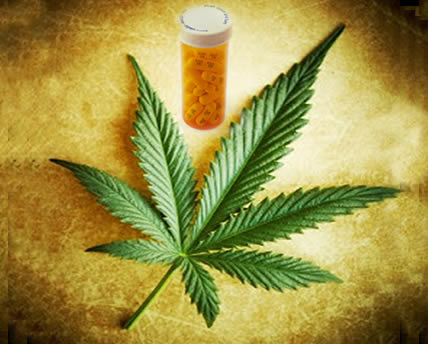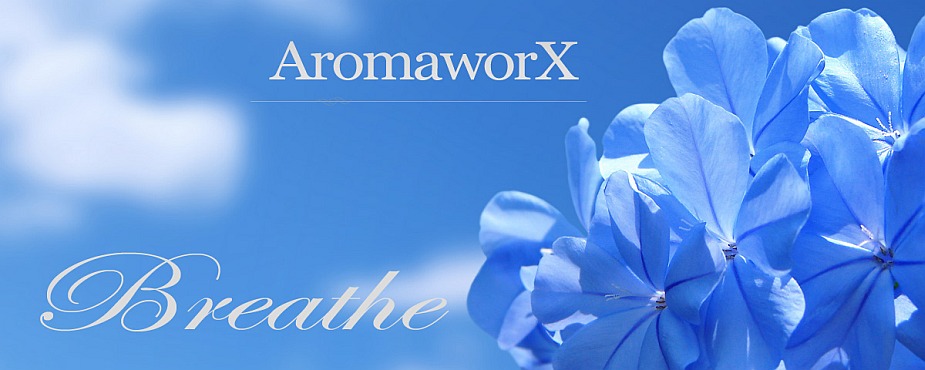Cannabis Treats Anxiety, Depression And Activates Pathways That Regulate Emotional Behavior
- Details
- Written by AndEl

Despite the myths we've heard throughout our lives about cannabis killing brain cells, it turns out that a growing number of studies seem to indicate that cannabis actually has neuroprotective properties. Cannabis has an incredible ability to regulate emotional behavior and may be the most reliable medicinal plant available as a therapeutic target for the treatment of anxiety and depressive disorders.
Beta-caryophyllene is present in the essential oils of various plants including rosemary, hops, black pepper and cannabis. Like most terpenes, beta-caryophyllene contributes to the unique aroma associated with plant oils.
But in 2008, German researchers discovered that beta-caryophyllene also acts as a cannabinoid by binding to marijuana pathways in the body.
Although some compounds like THC activate both cannabinoid pathways -- CB1 and CB2 receptors -- beta-caryophyllene specifically targets the CB2 receptor, which does not produce a high.
Interestingly, a new study conducted with mice suggests that beta-caryophyllene may be useful in treating anxiety and depression. The findings were published online in the journal Physiology & Behavior.
“The present study has clearly demonstrated the anxiolytic and anti-depressant effect of Beta-caryophyllene and its underlying mechanism in a CB2 receptor-dependent manner in rodents,” wrote the authors, a team of scientists with the United Arab Emirates University.
“The results also support the involvement of the CB2 receptor in the regulation of emotional behavior and suggest that this receptor could be a relevant therapeutic target for the treatment of anxiety and depressive disorders.”
Previous studies have also demonstrated a role of CB2 receptors in reducing anxiety and depression, the team adds.
On the other hand, CB1 receptors, which are more widely dispersed in the brain, are known to exert a ‘biphasic’ effect when it comes to anxiety and depression. Studies show cannabinoids that target CB1 receptors can help at low doses, while high doses seem to make things worse.
A better understanding of beta-caryophyllene’s properties, however, may help explain why cannabis users often cite relief of anxiety and depression as reasons for their use.
Antidepressant and Antianxiety
Anxiety and depression are pathologies that affect human beings in many aspects of life, including social life, productivity and health. Cannabidiol (CBD) is a constituent non-psychotomimetic of Cannabis sativa with great psychiatric potential, including uses as an antidepressant-like and antianxiety-like compound.
Cannabis acts on both types of receptors which are distributed mainly in the brain and immune system, respectively. In the brain, CB1 receptors are also targeted by endogenous cannabinoids (i.e., endocannabinoids).
The hippocampus is able to generate new neurons (i.e., neurogenesis) throughout the lifespan of mammals, including humans, has changed the way we think about the mechanisms of psychiatric disorders and drug addiction.
Chronic administration of the major drugs of abuse including opiates, alcohol, nicotine, and cocaine has been reported to suppress neurogenesis in the brain. But cannabinoids appear to be the only illicit drug whose capacity to produce increased newborn neurons is positively correlated with its antidepressant-like effects.
Research published in the journals Behavioural Brain Research andExperimental Brain Research demonstrated that even extremely low doses of THC (cannabis's psychoactive component) -- around 1,000 to 10,000 times less than that in a conventional cannabis cigarette -- can jumpstart biochemical processes which protect brain cells and preserve cognitive function say researchers from Tel Aviv University (TAU). Another example is one recent study which found that teens who used cannabis as well as alcohol suffered significantly less damage to the white matter in their brains. Some alcoholics have even recovered from their illness by using cannabis daily.
Dose is key and findings suggest that high doses of cannabinoids produce anxiety-like effects. To make things more complicated, acute, low doses of cannabinoids have been found to induce antianxiety-like effects. The opposing effects of high doses of acute and chronic cannabinoids, together with the antianxiety-like effects caused by a low dose of cannabinoids, may finally explain discrepancies in the clinical study literature regarding the effects of cannabinoid on anxiety and depression.
What is certain is that low-doses of cannabinoids do work. For some medical marijuana is helpful, not curative. But others have been able to completely eliminate their dependence on other medications altogether.
Anecdotal evidence for the benefits of cannabis for depression and anxiety are by itself useful to guide us to try using it for intractable disorders, that is, especially when we know that conventional treatments are inadequate, ineffective and now proven to cause more harm than good.

Sources:
jci.org
leafscience.com
psychologytoday.com
ncbi.nlm.nih.gov
Marco Torres is a research specialist, writer and consumer advocate for healthy lifestyles. He holds degrees in Public Health and Environmental Science and is a professional speaker on topics such as disease prevention, environmental toxins and health policy.
Source Here
Liked this article? Dive deeper into personal growth and wellness! Check out CrystalWind.ca for spiritual wisdom or explore AromaWorx.ca for natural well-being tips. Spread the positivity—share this with friends on their happiness journey!
Let’s Chat! Drop Your Thoughts Below! ![]()
Disclaimer Health
All post and information provided within this blog is for educational and informational purposes only, and is not to be construed as medical advice or instruction. No action should be taken solely on the contents of this website. Please consult with your healthcare professional before making any dietary or lifestyle changes or taking supplements that may interfere with medications. Any products or information discussed are not intended to diagnose, prevent, treat or cure any illness, disease or lifestyle. Please consult your physician or a qualified health professional on any matters regarding your health and wellbeing or on any opinions expressed within this website.
CrystalWind.ca does not promote, condone or advocate licit or illicit drug use. CrystalWind.ca cannot be held responsible for material on its website pages, or pages to which we provide links, which promote, condone or advocate licit or illicit drug use or illegal activities. CrystalWind.ca disclaims all warranties with regard to the information included in its pages. In no event shall CrystalWind.ca be liable for any special, indirect or consequential damages in connection with the information contained within these pages or pages to which we provide links.
CrystalWind.ca reserves the right to make changes and improvements to any information contained within these website pages, at any time and without notice and cannot be held responsible for any inconveniences caused by subsequent changes.
CrystalWind.ca makes no warranty, express or implied, including the warranties of merchantability and fitness for a particular purpose, or assumes any legal liability or responsibility for the accuracy, completeness, or usefulness of any information, apparatus, product, or process disclosed, or represents that its use would not infringe privately owned rights.

Imagine a world of inspiration and healing, free for all—made possible by YOU!
Donate Now—Ignite the Magic at CrystalWind.ca!

Epilepsy - Finding A Cure
Your donation can make a difference!
Help us find a cure – donate now!





































































































































